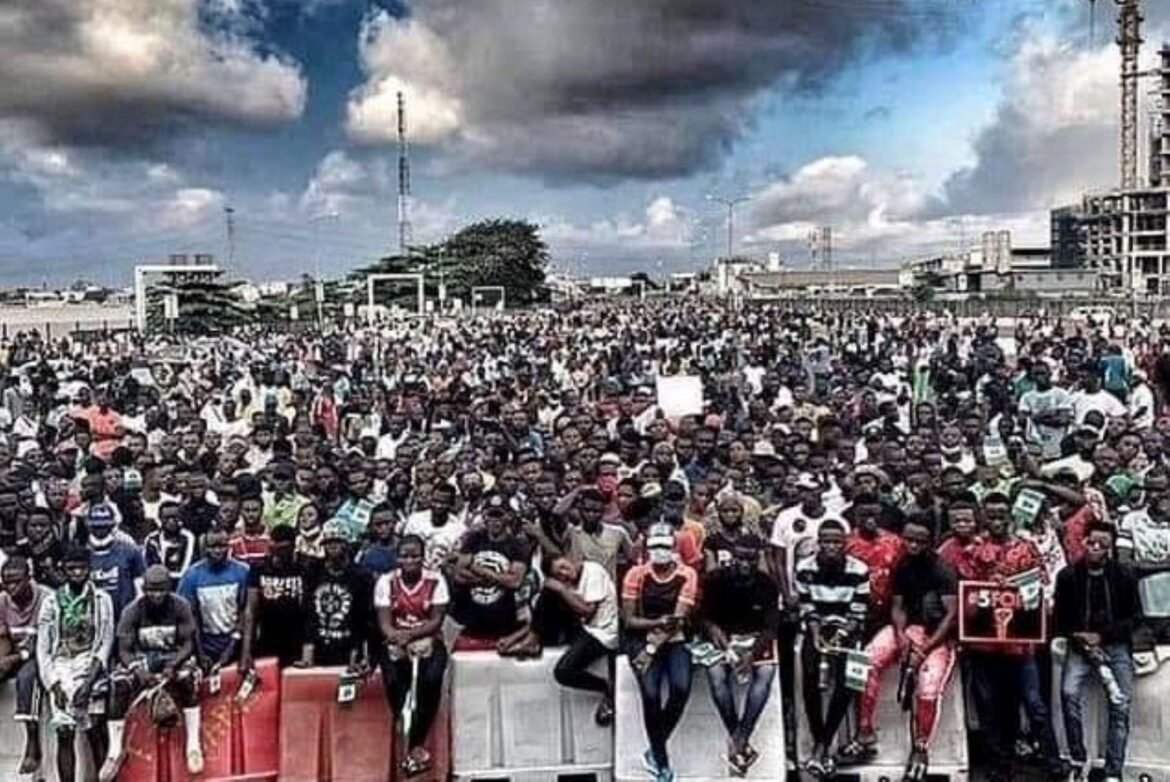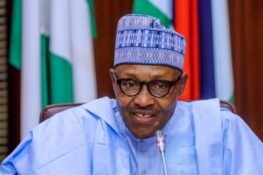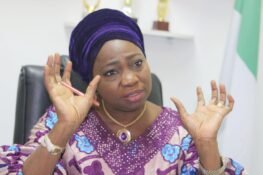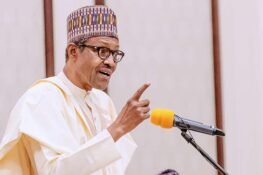I was visiting a senior over the weekend when our conversation devolved into the soul of the Nigerian banter: how is the country going, I asked?
He paused. After a moment of reflection, he took a deep breath and said, “There is tension.”
I thought that was obvious and required no special gift to see.
The tension sucks.
There is tension between those in government and those who are not.
Even among those in government, there is tension between the cabal and the fringe players.
Tension between those who think policies ought not to be governed by fear and those who think government by fear modelling is the only way.
Tension between those in one section of the country who feel hard done by and excluded, and those who think the other section is crying wolf where there is none.
Tension between those in the ruling All Progressives Congress (APC) and the opposition Peoples Democratic Party (PDP).
And even within the parties there is tension between the natives and the migrants, between those who hold the purse strings and those making noise and spending the money.
There is tension between farmers and herdsmen; tension between communities where fault-lines have surfaced and those where deep-seated resentments have washed up.
There is even tension between fintech companies and banks; between service providers and users; and between employers and labour unions.
Tensions motivated by religion, weaponisation of political appointments, and so on.
Tension is the mother of motion. So, what’s the problem?
He repeated that there is “serious tension” in the country and, this time, his words carried a strangeness and urgency that caught my attention.
The senior explained that the tension he was referring to, was not in any of the categories I had in mind.
It had little or nothing to do with ethnicity, partisan politics or position in government.
It was a more insidious, more dangerous and potentially malignant kind of tension, one which had not only come to define our existence in recent times, but which threatens to consume us.
It’s potentially destructive tension.
I was all ears. And then he continued.
In Nigeria today, there are broadly two classes – those between the ages of 25 – 45 (the #ENSARS generation); and those above, say between 50 and 65, the new population on the threshold of the geriatric ladder.
Back in the day, he said, by the time our fathers reached the age of 45 or 50, they would already be looking old and grey.
While the younger generation cannot wait to take the helm in politics, business and government, the older generation increasingly more responsible for looking after themselves in middle and old age, and without the certainty of job security or pensions, is clinging to power
There were a few exceptions, of course.
The point was that the vast majority of 45-and-above lived relatively short, perilous and laborious lives, with very little of the benefits of modern medicine, science and technology that we currently enjoy.
By the time they reached middle age, the senior said, our fathers looked really advanced in age; some, in fact, like the great-grandfathers of today.
A good number of them coveted the security of the civil service or other pension-paying jobs.
They retired quite early and were happy to enjoy their retirement drawing on their pension, which never failed.
If there was tension at that time, the senior said, it was a different kind of tension, comprising mostly ribaldry over politicians and their shenanigans, community disputes and whether or not their children would have a better future.
Life was, well, good.
He paused.
And with a countenance that seemed overcome by a sudden flush of misery, he continued.
Today, when you ask, “How is the country?”, the answer is different.
It’s different because the tensions have changed quite dramatically.
Those between the ages of 25 and 45 are pitched in a deadly oedipal war against those between the ages of say, 50 to 65.
This, he said, was what he meant.
Today’s young people, those in that first age bracket – derisively called the #ENDSARers – are a different breed.
Millions of them have the best education abroad, while those who went to school at home are making the most of technology to improve themselves and their place in society.
They are wiser, more adventurous, more independent and determined.
They are increasingly impatient with excuses for why Nigeria is being so badly and catastrophically run.
For them, for example, the country’s predicament and the incompetence of the old guard are summarised by Jack Dorsey’s decision to set up Twitter’s Africa headquarters in Ghana instead of Nigeria whose 25million Twitterratti nearly equals Ghana’s population.
Their confidence in the system is so broken, so badly damaged that for days during the #ENSARS protest, for example, they refused to appoint leaders, because for them, “leader” has become a byword for corruption, incompetence and retrogression.
The young, today’s young, want a place at the table and they want it now.
Some think it’s driven more by entitlement rather than by preparation or performance.
Or perhaps by that feeling in every generation that its burden is the heaviest.
Whatever it is, the senior said, #ENDSARS 2.0 is only a matter of time.
On the other side of the barricade are those who are between the ages of 50 and 65 mostly living longer, healthier lives.
That should be good news for the younger generation that their parents are living healthier, longer lives, but it’s not.
Ask rhythm and blues icon, Brian McKnight, who made a video about one year ago entitled, “Ungrateful children”, in which he accused one of his children of saying, “Dad is better dead.”
But dad isn’t going yet. Science, medicine and technology have led to longevity.
As lives have lengthened, however, so have complications and uncertainty arising from money issues and the economics of longevity.
And this, the senior said, is at the crux of the tension.
While the younger generation cannot wait to take the helm in politics, business and government, the older generation increasingly more responsible for looking after themselves in middle and old age, and without the certainty of job security or pensions, is clinging to power.
Older people are particularly impacted by the tension in countries such as ours with virtually no social safety net and runaway inflation.
They are forced to stand their ground and fight with hair dye and foundation-reinforcing facial make-up to keep the young from encroaching.
For those in government used to extravagant comfort, it’s another matter altogether.
They dig in through means fair and foul to keep their place at the table because they believe they still have gas in their tank and are young at heart.
The senior told me that at 60, he could still do all the things he used to do at 45 – and that includes all things good and not-so-good.
Older people are particularly impacted by the tension in countries such as ours with virtually no social safety net and runaway inflation
He said he could think like a 45-year-old and though he’s an outlier in the Executive Management, with people mostly in their late 30s and early 40s in the majority, when the chips were down, they could hardly out-think him.
This is where the tension lies: the young consider themselves prepared to take over, and can no longer wait to do so.
But the older generation, faced with the vagaries of the sunset years, especially the ravages of inflation, higher health maintenance costs, and mounting family pressures, is still not prepared to yield, whatever they might say about the youth being tomorrow’s leaders.
The senior insisted that at the heart of the multi-faceted tensions that I may prioritise, this particular type – tension between the young and the middle-age/old – cuts across: it cuts across ethnic and regional boundaries, across party lines, communities and families.
Youths across all regions of the country, he said, want basically the same things – opportunities to express themselves, platforms to unleash their creative energies, and space to innovate and build.
But they are not getting any of that.
Instead, what they are getting are failed promises and long lines of warmed-over politicians or their godchildren, all determined to recycle themselves.
That lack or denial of opportunity is what is manifesting as protests, massive migration and, in its regrettable and extreme form, separatism or insurgency.
That is “The Tension.”
In typical Nigerian manner, we agonised over the matter, knocked it back and forth, and moved on, hoping – and perhaps praying – that the problem will go away.
I don’t know.
Perhaps sociologists and psychologists would examine the conundrum of generational tension and the impact of oedipal wars on social progress?








